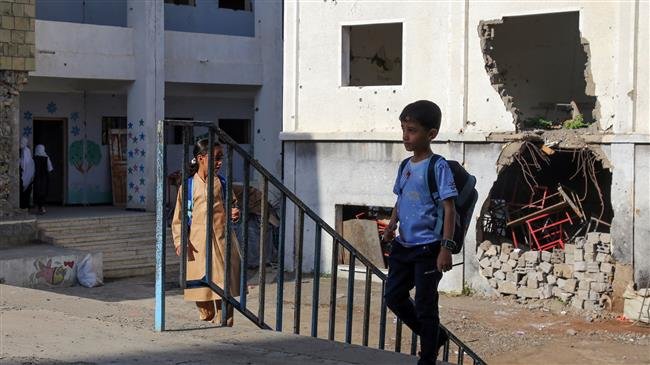
RNA - Saudi Arabia, the Riyadh-backed former Yemeni government, Saudi Arabia, the United Arab Emirates, Bahrain and Egypt issued a joint statement late Friday, claiming that the resolution was “biased.”
“We are left with a resolution which is biased, and which clearly contradicts the clear mandate laid out by the United Nations Security Council,” said the joint statement.
“In particular, we are disappointed that certain member states failed to consider the real and legitimate concerns of those states who are most affected by the situation in Yemen,” the statement added.
The UN’s top human rights body voted by 21 votes to eight on Friday to extend an inquiry into human rights violations in war-torn Yemen.
Saudi Arabia launched its war on Yemen on March 2015 to bring former president Abd Rabbuh Mansur Hadi back to power and crush the country’s popular Houthi Ansarullah movement.
Earlier on Friday, Hadi’s side in Yemen announced that it “refuses to extend the mission’s mandate because its findings outlined in the report, did not meet the standards of professionalism and impartiality or the basic principles of the United Nations.”
Last month, investigators detailed evidence of possible war crimes committed in the war-torn country. Their August 28 report said Saudi airstrikes had caused “most of the documented civilian casualties.” The UN mission voiced “serious concerns about the targeting process.”
According to the report, Saudi Arabia airstrikes hit Yemen’s residential areas, markets, weddings, medical facilities and funerals.
Some 15,000 Yemenis have been killed and thousands others injured since the onset of the Saudi aggression.
More than 2,200 others have died of cholera, and the crisis has triggered what the United Nations has described as the world’s worst humanitarian disaster.
According to Press TV, an estimated five million Yemeni children may not see their next birthday in a war the UN children’s fund has described as a “living hell” for minors, with 18 million of its 29 million population food insecure.
The World Food Program (WFP) warned on Thursday that there “very well could be” famine in remote areas of the country, where the UN’s food agency does not have access.
“Yemen is a disaster and I don’t see any light at the end of the tunnel right now,” WFP’s Executive Director David Beasley told reporters at a closed briefing during the UN General Assembly in New York City.
“Yemen is undeniably the world’s worst humanitarian crisis by far,” said Beasley.
847/940